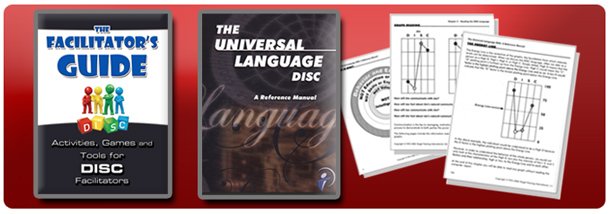DISC Profile: D is for Dominance
Note: It is important to note we are only talking about the D Style in its "pure" sense. That is, the D Style described in isolation, without considering the effect of the other 3 factors.
Dominance
This scale measures how you deal with problem and challenges. The higher the score on the D scale, the more assertively a person will tend to tackle problems and challenges. The lower the score on the D scale, the less assertively they will approach problems and challenges.
High D's are often described as: Demanding, Driving, Ambitious, Pioneering, Strong-Willed, Forceful, Determined, Aggressive, Competitive, Decisive, Venturesome.
Low D's are often described as: Conservative, Calculating, Cooperative, Hesitant, Low-Keyed, Unsure, Undemanding, Cautious, Mild, Agreeable, Modest, Peaceful, Unobtrusive.
General Characteristics Of The “D” Behaviour
The “D” style has an inherent need to direct and be in control. The “D” style likes to have options and make decisions for themselves. They don’t like to be backed into a corner, and they will typically push and challenge others to move faster, work harder and achieve more. The “D” style will usually get bored quickly if their job becomes mundane or loses its challenge.
The “D” behaviour has a real desire to win and be on top. They have a strong ego and tend to like to prove that they can do the things people said they couldn’t. The “D” behaviour has a very direct way of communicating, to the point of being blunt or abrasive (sometimes aggressive).
The “D” style will usually take responsibility for their actions – they often use the motto “do now and ask for forgiveness later”. They are more focused on getting the desired results, than the actual path to get there. To the “D” style it does not matter how you got there, just as long as you did.
The emotion of the “D” style is anger – this style tends to have a short fuse and are quick to anger when they are not getting the results they are looking for.
For more information
Refer to The DISC Facilitator's Guide (a manual for creating and running DISC training activities) and The Universal Language DISC: A Reference Manual (the only manual in the world on DISC) - provided as part of your DISC Accreditation.

More Information:
Topics:
DISC Profile
Theo Winter
Client Services Manager, Writer & Researcher. Theo is one of the youngest professionals in the world to earn an accreditation in TTI Success Insight's suite of psychometric assessments. For more than a decade, he worked with hundreds of HR, L&D and OD professionals and consultants to improve engagement, performance and emotional intelligence of leaders and their teams. He authored the book "40 Must-Know Business Models for People Leaders."


/Workshop%2014_%20Building%20Team%20Resilience%20Workshop.png?width=374&name=Workshop%2014_%20Building%20Team%20Resilience%20Workshop.png)
We Would Like to Hear From You (0 Comments)